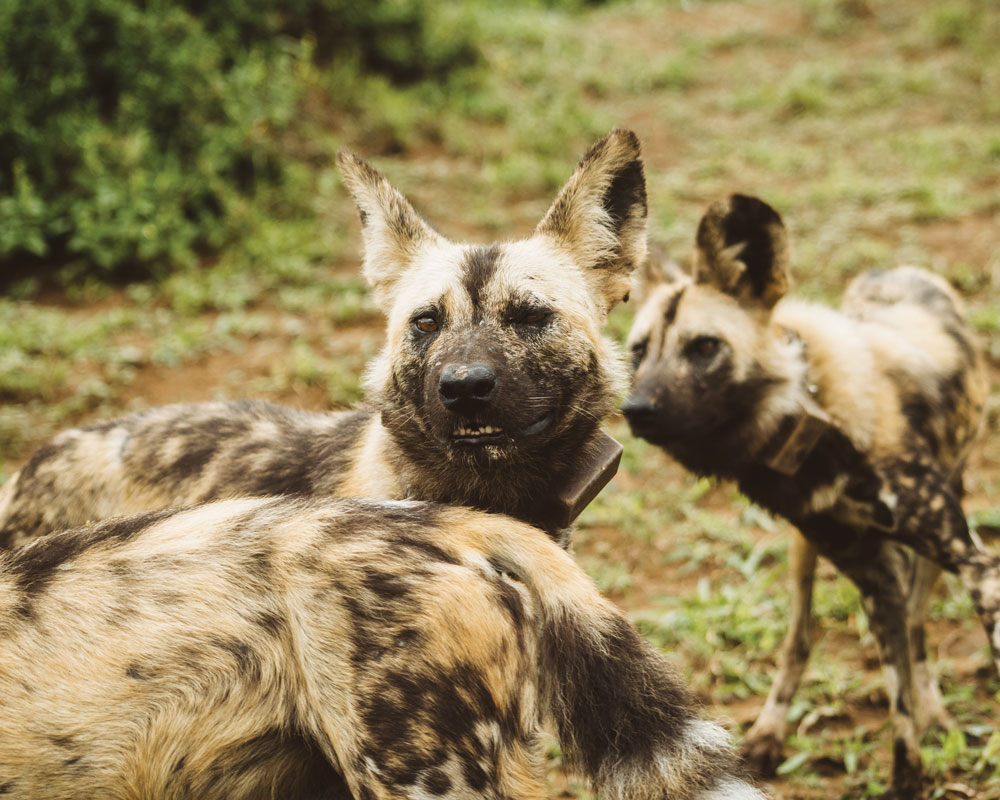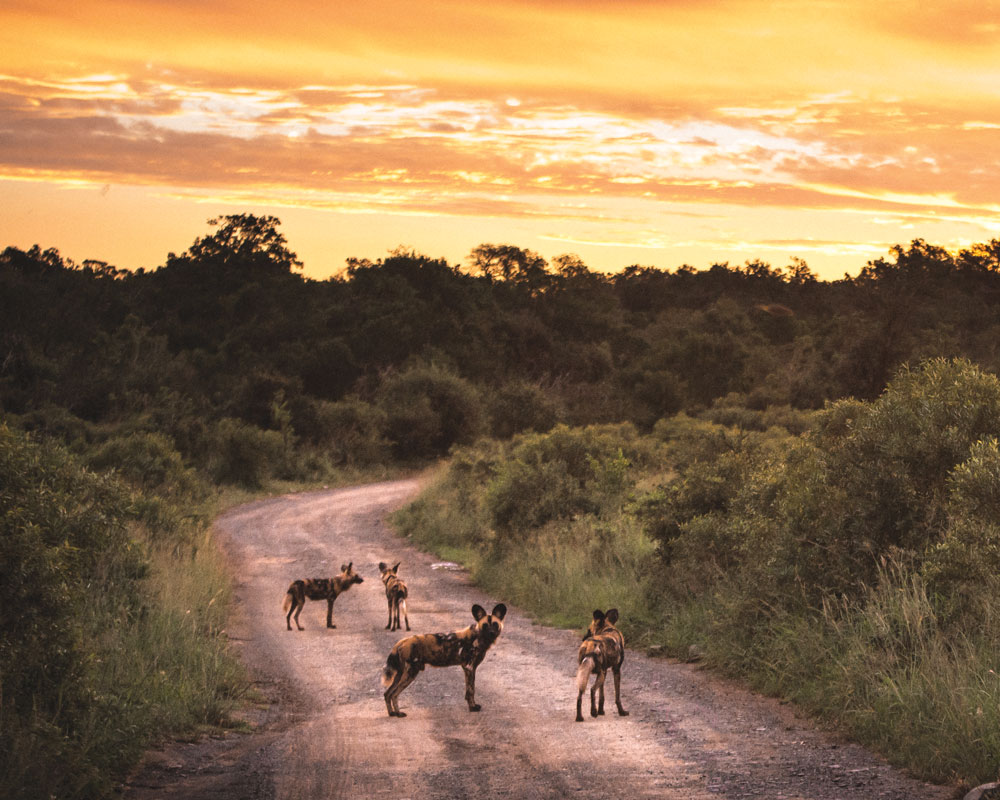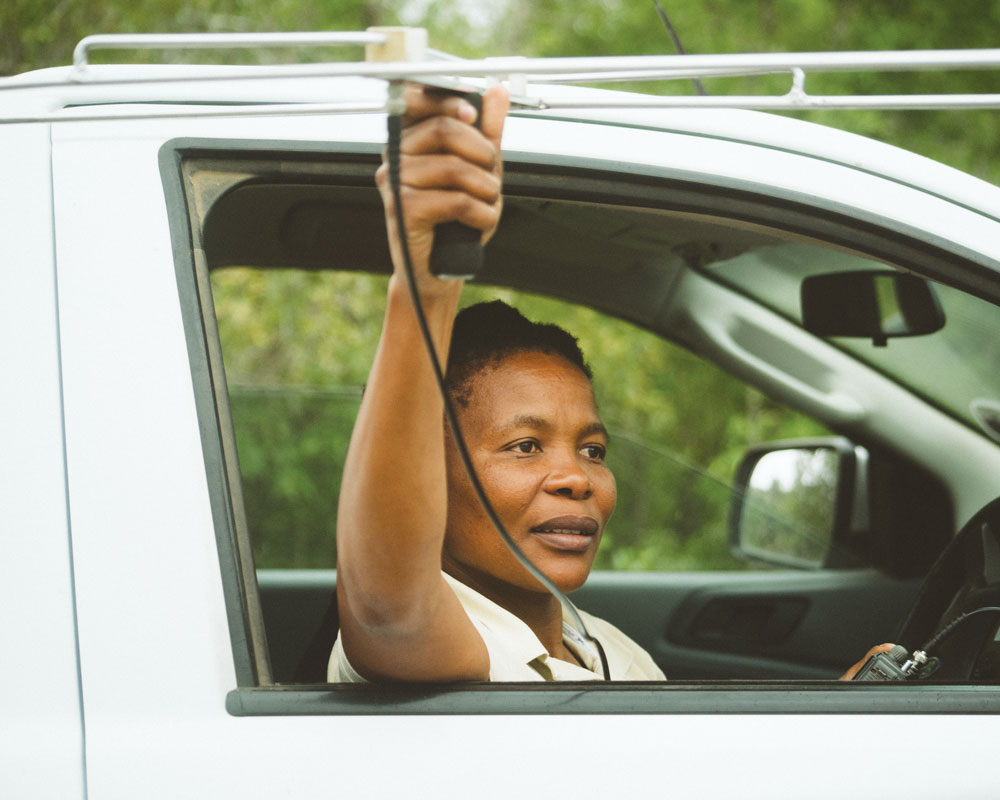

Saving the Endangered African Wild Dog
Conservationist Marumo Nene spends long days in the field tracking African Wild Dogs to protect the species
While most of us are still snuggled in bed at 4 am with our dogs nearby, Marumo Nene is travelling across a South African park to track dogs from a distance. While our home office space is limited to four walls, her “workspace” spans over 960 kilometres.
As a conservationist at the South African non-profit Wildlife ACT, Nene spends her days monitoring African wild dogs in Hluhluwe-iMfolozi Park. Her job is not to capture the endangered species but instead to track their activities and ensure they stay in the park. At last count, there are only an estimated 6,600 African wild dogs living across Africa.
Nene was born and raised in a South African village called Emabhokisini (Hlabisa), northwest of the park where she works. Hluhluwe-iMfolozi Park is the oldest proclaimed nature reserve in Africa.
She started her job at Wildlife ACT in 2008, the year it was founded. “I would say what inspired me to work in this field was my dad,” she says. “He loved nature.”
Photo Casey Pratt of Love Africa Marketing
The organization was created to ensure sustainable, long-term monitoring and conservation projects. They provide tracking and monitoring services at no charge to African game reserves unable to fund or provide effective wildlife monitoring projects. At the time Nene started working for Wildlife ACT, only a few women were in the field. She wanted to inspire others to join her, and now more women are working in the same profession.
Her schedule matches that of the dogs who are active the moment the sun rises. Early each morning, she packs coffee and rusk (a hard, dry biscuit) and heads out into the park. Rather than being cooped up in a cubicle, she is surrounded by a grassy, tree-filled terrain with rolling hills and valleys.
“I love being part of the pack and being active when they are, it’s a good feeling when I’ve found them.”
A typical day for Nene involves following the dogs and recording their daily movements and prey. She observes and documents their social behaviour and ensures that they stay in good condition. Her method for tracking the African wild dogs is telemetry. The device she holds above her head resembles a TV antenna and can reach a signal up to eight kilometers. She also checks online to see if the SAT (satellite tracking) collars the dogs are fitted with have uploaded data revealing their location.
Photo by Chantelle Melzer
“The first time I was given the opportunity to monitor them, I didn’t understand,” she said in an interview with CNN. “I learned their behaviour, social structure and fell in love with them.”
According to the World Wildlife Fund (WWF), the African wild dog—also known as the painted dog—is one of the world’s most endangered mammals. Their fur comprises a patchwork of tan, brown, red, black, and white. These big-eared dogs can run faster than 44 miles per hour, sometimes in packs of over 40.
When the animals rest, Nene leaves the area and follows other priority species, including, but not limited to, elephants, lions, cheetah and leopards. Then she travels back to camp to handle administrative tasks and to do data entry. After taking a break, she ventures out again when the weather has cooled enough for the wild dogs to resume roaming.
Marumo nene, photo Chantelle Melzer
Wildlife ACT funds its wildlife projects through volunteers who apply for the opportunity to visit and work alongside staff members like Nene. They offer conservation safaris from three to five days and volunteer trips from one to two weeks.
“With my job, I’ve met so many people from different countries, learned lots of things, and made lots of friends,” she says.
Through her tireless work for Wildlife ACT, this dedicated animal-lover is helping to save the African wild dog and other endangered animals from extinction.
“I love being part of the pack and being active when they are,” she says. “It’s a good feeling when I’ve found them.”
Join the newsletter and never miss out on dog content again!
"*" indicates required fields
By clicking the arrow, you agree to our web Terms of Use and Privacy & Cookie Policy. Easy unsubscribe links are provided in every email.


